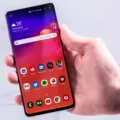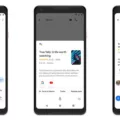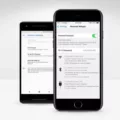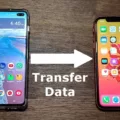The iPhone vs Android debate has been ongoing for years, with both sides presenting their arguments. However, there are several advantages that the iPhone has over Android devices that make it a popular choice for many users. In this article, we will delve into the various advantages of the iPhone and why it may be the right choice for you.
One of the key advantages of the iPhone is its fast processors, which deliver better performance compared to most Android phones. Apple has a reputation for blending hardware and software seamlessly, resulting in an efficient and effective device. This means that tasks on the iPhone are executed quickly and smoothly, providing a seamless user experience.
In addition to performance, another advantage of the iPhone is its reliable battery life. Apple has optimized its devices to ensure that the battery lasts throughout the day, even with heavy usage. This is a significant advantage over many Android phones that often struggle to provide long-lasting battery life.
When it comes to information security, the iPhone takes the lead. iOS, the operating system used by iPhones, is known for its robust security features. iPhones receive regular and timely OS updates, ensuring that any vulnerabilities are addressed promptly. This is in contrast to Android devices, which often face delays in receiving updates, leaving them more susceptible to security threats.
The quality and features of the iPhone’s camera are also worth mentioning as an advantage over Android phones. Apple has consistently improved the camera capabilities of its devices, resulting in stunning photos and videos. Additionally, the iPhone’s camera app offers a range of features and settings that allow users to enhance their photography skills.
One of the most significant advantages of the iPhone is the consistent and dependable software updates. Apple provides regular updates to its devices, ensuring that users have access to the latest features and improvements. This is in contrast to the fragmented nature of Android updates, where different manufacturers and carriers may delay or even completely neglect providing updates to their devices.
The user interface and user experience of the iPhone are also noteworthy advantages. The iPhone has a reputation for a simple and intuitive interface, making it easy for users to navigate their way through the system. Additionally, the iPhone’s UI is consistent across all devices, providing a seamless experience for users who switch between different Apple products.
Being part of the Apple ecosystem is another advantage of the iPhone. If you own other Apple products, such as a Mac or an iPad, the integration between these devices is seamless. You can easily sync your data, messages, and apps across multiple devices, creating a cohesive experience.
Lastly, iPhone users often have the advantage of experiencing new apps in the market first. Developers tend to prioritize iOS when launching new apps, meaning that iPhone users often have access to the latest apps before Android users.
The iPhone offers several advantages over Android devices. From its fast processors and reliable battery life to its strong information security and consistent software updates, the iPhone provides a superior user experience. Additionally, the iPhone’s intuitive user interface, integration with other Apple products, and early access to new apps further solidify its position as a top choice for many consumers. Whether you’re a tech enthusiast or a casual user, the iPhone’s advantages make it a compelling option to consider.
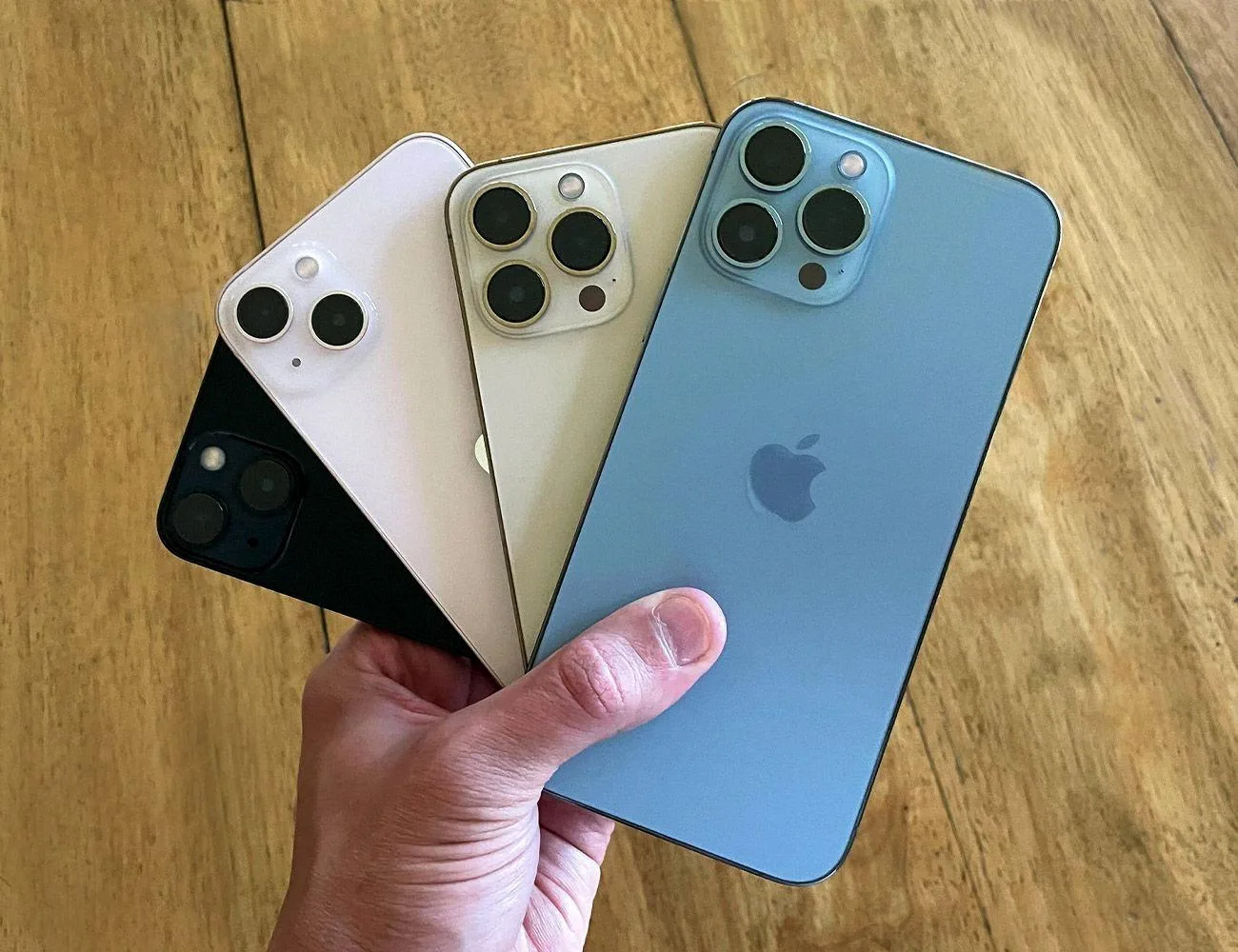
Why IPhone Is Better Than Android?
There are several reasons why the iPhone is considered better than Android phones. One key factor is the fast processors used in iPhones, which contribute to better overall performance. These processors are designed to handle complex tasks and ensure smooth usability.
The iPhone also benefits from the integration of its hardware and software. Apple develops both the hardware and the operating system, allowing for better optimization and efficiency. This means that the iPhone can deliver a more seamless user experience compared to Android phones, which have to accommodate various hardware configurations from different manufacturers.
Additionally, Apple’s ecosystem is well-known for its reliability and security. iPhones receive regular software updates, ensuring that users have access to the latest features and security patches. This helps to protect against vulnerabilities and keeps the device running smoothly.
Furthermore, Apple’s App Store is known for its stringent app review process, which helps to maintain a high standard of quality and security for users. Android, on the other hand, allows for more open access to app development, which can sometimes result in a greater risk of malware and security breaches.
In terms of design, iPhones are often praised for their sleek and elegant aesthetics. Apple pays great attention to detail in the design of their devices, resulting in a premium look and feel.
To summarize, the iPhone’s faster processors, seamless integration of hardware and software, reliable ecosystem, and secure app store all contribute to its reputation as a superior choice compared to Android phones.
What Are Good Reasons To Have An IPhone?
There are several compelling reasons to consider purchasing an iPhone. Here are some key factors to keep in mind:
1. Reliable Battery Life: iPhones are renowned for their efficient battery performance, ensuring that you can rely on your device throughout the day without constantly needing to recharge.
2. Optimum Processor Performance: Apple’s A-series chips consistently deliver top-notch performance, ensuring smooth and efficient operation of your iPhone even when running demanding apps or multitasking.
3. Strong Information Security: Apple puts a strong emphasis on user privacy and data security. iPhones come with features like Face ID or Touch ID, providing secure authentication methods, and iOS regularly receives security updates to keep your device protected.
4. Camera Quality and Features: iPhones are well-known for their exceptional camera capabilities. With each new model, Apple introduces improvements in image quality, low-light performance, and additional features like Portrait mode or Night mode, allowing you to capture stunning photos and videos.
5. Consistent and Dependable Software Updates: Apple’s iOS updates are available for all compatible devices simultaneously, ensuring that you receive the latest features, bug fixes, and security enhancements promptly. This ensures a longer lifespan for your device and a consistent user experience.
6. Easy to Navigate User Interface: iOS offers a user-friendly interface that is intuitive and easy to navigate, allowing you to quickly access apps, settings, and features with minimal effort.
7. The Apple Ecosystem: If you already own other Apple devices like a Mac, iPad, or Apple Watch, having an iPhone seamlessly integrates into the Apple ecosystem. This enables features like Handoff, AirDrop, and iCloud synchronization, enhancing your overall user experience.
8. Experience New Apps in the Market First: Developers often prioritize iOS when launching new apps or features, giving iPhone users early access to the latest and greatest apps and innovations.
The reliable battery life, strong performance, robust security measures, excellent camera capabilities, consistent software updates, user-friendly interface, integration within the Apple ecosystem, and early access to new apps make the iPhone an attractive choice for many users.
What Will I Miss Switching From Android To IPhone?
When switching from Android to iPhone, there are several things that you may miss out on. Here’s a detailed list:
1. Security: iOS is generally considered more secure than Android. Apple’s operating system is known for its robust security measures, including regular and timely updates to address vulnerabilities.
2. Operating System Updates: iPhones receive regular and timely operating system updates directly from Apple. This ensures that your device stays up-to-date with the latest features, bug fixes, and security patches.
3. App Store Quality Control: Apple’s App Store has stricter quality control measures compared to the Google Play Store. This means that the apps available on the App Store are generally of higher quality and have undergone more rigorous screening.
4. User Experience: iPhones offer a more uniform and fluid user experience compared to Android. Apple tightly controls the hardware and software integration, resulting in smoother performance and a consistent interface across different iPhone models.
5. Apple Ecosystem Integration: If you use other Apple products, such as Mac computers, iPads, or Apple Watches, switching to an iPhone allows for seamless integration and synchronization across all devices. This can enhance your overall user experience and productivity.
6. Build Quality: iPhones are known for their premium build quality. Apple pays attention to the design and construction of their devices, resulting in a more durable and aesthetically pleasing product.
7. iMessage and FaceTime: If you frequently use iMessage and FaceTime to communicate with others, switching to an iPhone ensures seamless integration with these Apple-exclusive messaging and video calling services.
8. Apple-exclusive Features: iPhones often come with exclusive features that are not available on Android devices. For example, Siri, Apple’s virtual assistant, offers a more integrated and personalized experience compared to Google Assistant on Android.
9. Apple Support: Apple has a reputation for providing excellent customer support. If you encounter any issues with your iPhone, you can rely on Apple’s extensive support network, including Apple Stores and online resources.
10. Familiarity: If you have been using Android for a long time, switching to an iPhone may require some adjustment. You may miss certain Android-specific features, customizations, or apps that are not available on iOS.
It’s important to note that these points may vary based on personal preferences and individual usage patterns. Ultimately, the decision to switch from Android to iPhone should be based on your specific needs and priorities.
Which Phone Is More User Friendly IPhone Or Android?
When it comes to user-friendliness, both the iPhone and Android have their own strengths and weaknesses. However, the iPhone is generally considered to have a more intuitive and user-friendly interface.
Here are some key reasons why the iPhone is often seen as more user-friendly:
1. Consistency: The iPhone’s user interface remains consistent across all devices. This means that once you learn how to use an iPhone, you can easily navigate and use any other iPhone model without any significant changes in the interface.
2. Simplicity: The iPhone’s interface is designed to be simple and straightforward. The layout and design elements are clean and minimalistic, making it easy for users to understand and operate the device.
3. Ease of use: Apple puts a strong emphasis on usability and accessibility. The iPhone’s interface is designed with the average user in mind, making it easy for anyone, regardless of technical expertise, to pick up and use.
4. App Store: The App Store on the iPhone offers a curated selection of applications, ensuring that users have access to high-quality and trustworthy apps. This helps users avoid potentially confusing or harmful apps.
On the other hand, Android offers a more customizable and flexible experience. While this can be appealing to tech-savvy users who prefer to personalize their devices, it can also lead to a steeper learning curve for those who are less familiar with technology.
Here are some key reasons why Android may be seen as less user-friendly compared to the iPhone:
1. Fragmentation: Android is available on a wide range of devices from various manufacturers, leading to a fragmentation of the user experience. Different Android devices may have different versions of the operating system and customized interfaces, which can make it more challenging for users to adapt when switching between devices.
2. Customization complexity: While Android’s customization options are a significant advantage for some users, they can also be overwhelming for others. The ability to change system settings and personalize the interface requires a deeper understanding of the operating system, which may not be intuitive for everyone.
3. App variety: While the Google Play Store offers a vast selection of apps, the quality and consistency of apps can vary. Some apps may not be optimized for all Android devices, leading to potential compatibility issues and a less streamlined user experience.
While both the iPhone and Android have their own strengths and weaknesses, the iPhone is generally considered to be more user-friendly due to its consistent interface, simplicity, and emphasis on usability. Android, on the other hand, offers more customization options but can be more complex for users who are less tech-savvy. Ultimately, the choice between the two depends on individual preferences and needs.
Conclusion
The iPhone offers a multitude of advantages that make it a top choice for many users. From its reliable battery life and optimum processor performance to its strong information security and high-quality camera features, the iPhone consistently delivers on performance and functionality. Additionally, the iPhone’s seamless integration with other Apple products, regular and timely software updates, and strict quality control in the App Store enhance the overall user experience. The intuitive and user-friendly interface of the iPhone further adds to its appeal, providing a consistent and fluid navigation experience. the iPhone’s combination of hardware and software excellence, along with its superior build quality, make it a standout choice in the smartphone market.







